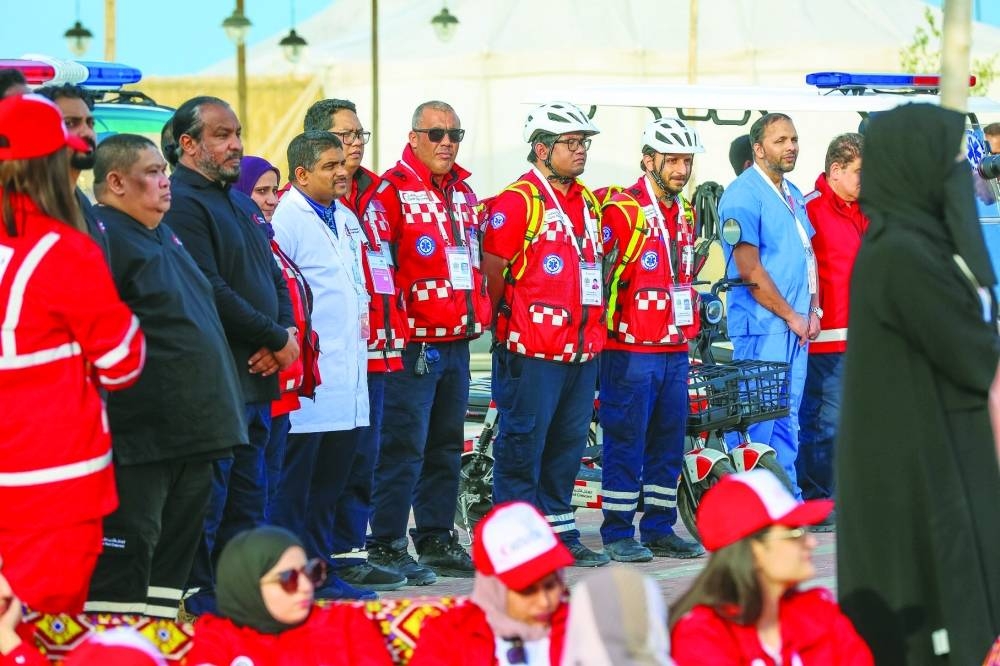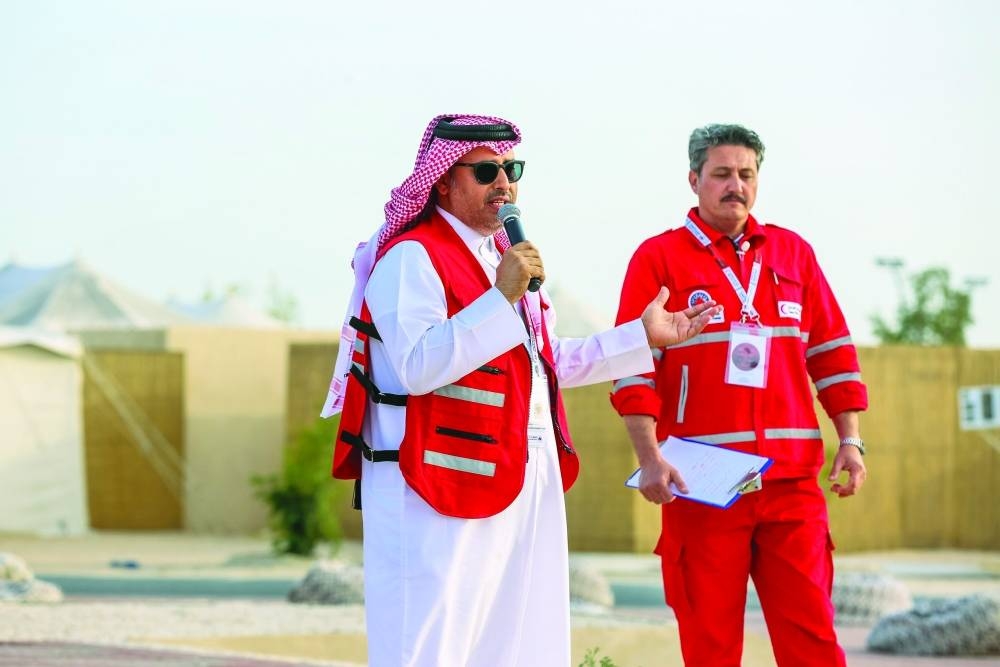Qatar Red Crescent Society’s (QRCS) 9th Disaster Management Camp (DMC-9) was launched Tuesday at Al Khor, under the slogan 'Effective Preparedness and Better Response'.
Under the patronage of the Ministry of Public Health (MoPH), the 10-day event is being attended by 300 trainees and 40 trainers from the government, NGOs, and private sector of Qatar, national societies of the region, and international humanitarian organisations.
DMC-9 is supported by the United Nations, the International Federation of Red Cross and Red Crescent Societies (IFRC), the International Committee of the Red Cross (ICRC), General-Secretariat of the Gulf Co-operation Council (GCC), and National Societies in the Middle East and North Africa.
During the day, the participants were admitted and registered as per relevant international procedures and standards. The trainees were divided into teams and groups, and each person given a package containing the uniform, personal and hygiene materials, and field relief tools.
After a vital signs examinations at the medical clinic managed by QRCS’s medical professionals, including blood sugar and blood pressure tests, the participants were accommodated in their fully furnished tents.
During the general meeting, Hussein Aman al-Ali, head of DMC-9, emphasised the importance of saving lives, thanked the organisers for their great efforts, and hoped the event would be another achievement for Qatar.
In his speech, Mohamed Rashid al-Marri, deputy head of DMC-9, welcomed the participants. “Though many people may think this camp is in response to the Syria-Turkiye earthquake, it was planned for months, to be held at this time,” he explained.
DMC-9 involves theoretical and practical training programmes. During the morning, the trainees, divided into six teams - Red, Blue, Green, Yellow, Gray, and Purple - practice different areas of field relief: field assessment and co-ordination, emergency shelter, water and sanitation, food security and livelihood, health in emergencies, and emergency planning and operations room.
In the evening, the trainees are divided into six groups, named after the fundamental principles: humanity, impartiality, neutrality, independence, unity, and voluntary service. The groups attend training sessions on the following topics: basic humanitarian standards, media and communications in emergencies, restoring family links, safer access, psychological support, disaster management and response tools, and climate change.
By the end of the event, all teams and groups will have practiced all the topics and training areas. Also, there will be unexpected disaster simulations that engage the trainees in real-life scenarios, in which they have to apply the information and skills acquired during the training.


